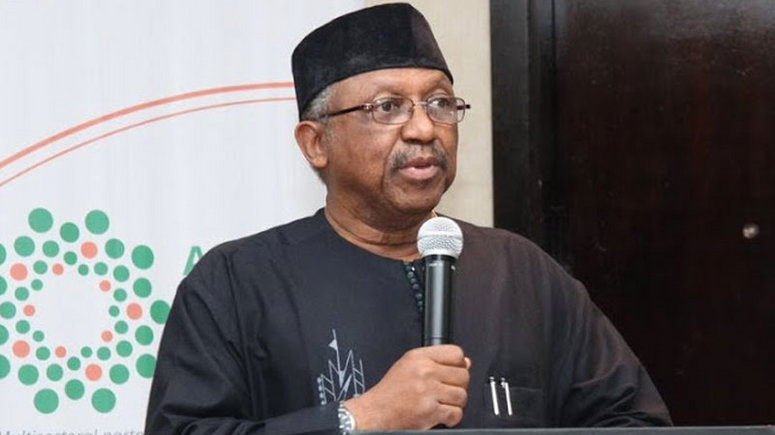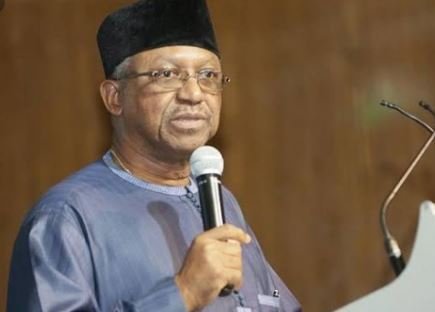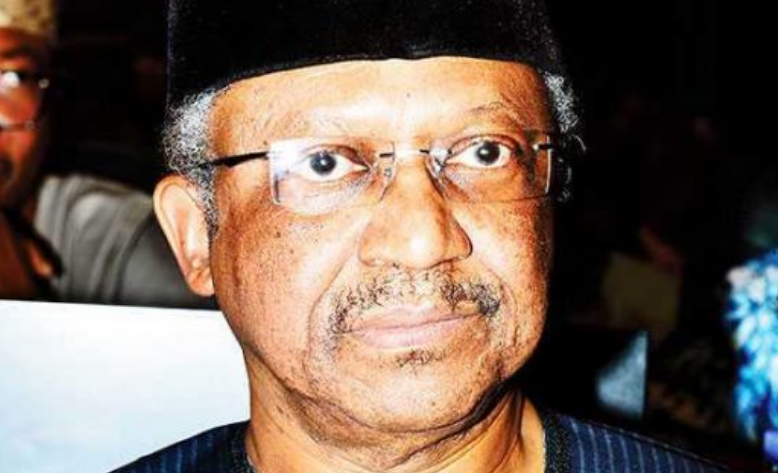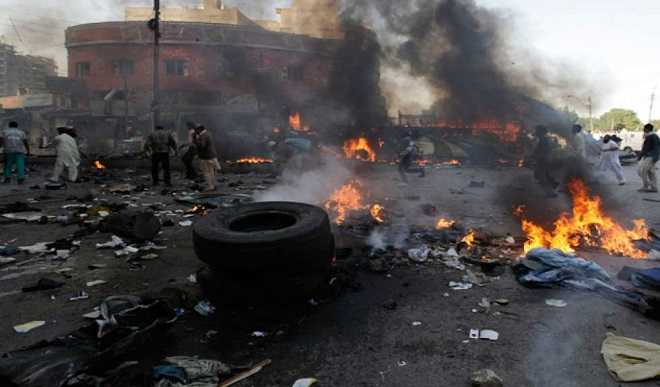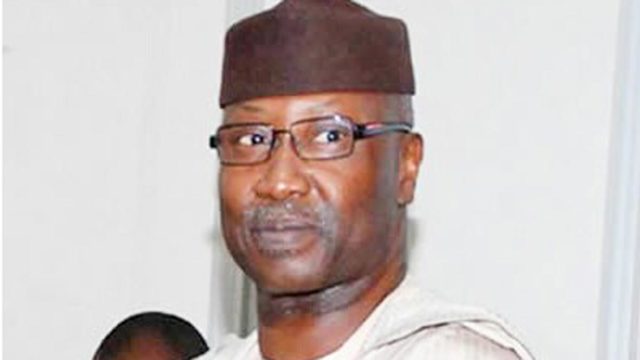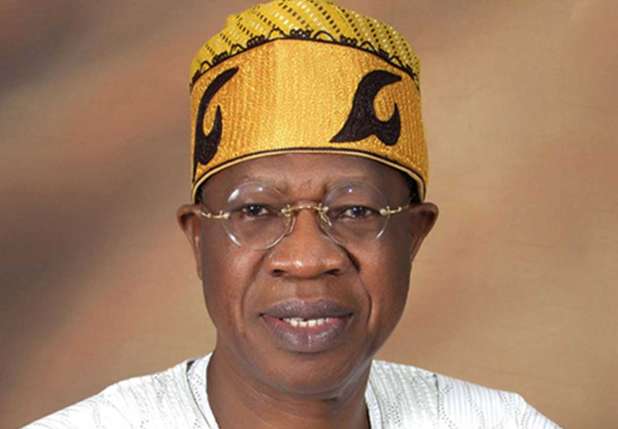By Magnus Onyibe
The level of insecurity in our country is at such a frightening stage that in a recent travel advisory to her citizens, the Canadian authorities directed her nationals not to engage in nonessential visits to Nigeria.
Not just that they face the risk of being infected by the novel coronavirus, but to avoid being killed by local terrorists or kidnapped by bandits.
This latter type of terrorists now tagged bandits to avoid profiling or stigmatizing a particular ethnic group, seem intent on setting our beloved country ablaze by committing ignominious and hideous crimes while camouflaging as cattle herdsmen.
And since the Fulani in particular is the ethnic group that is dominant in the business of animal husbandry, the consequences of the dastardly acts of the criminal elements cloaked as cattle herders are currently rubbing off fatally on law abiding herdsmen, who are bearing the brunt of the deviltry by their nefarious imposters as evidenced by the recent unfortunate and sadistic act of lynching alleged criminals disguised as cattle herders that went viral.
In my previous media intervention on same issue titled “Pastoralists And Farmers Conflicts In Nigeria: Time For Fulani Capitalism, Not Herdsmen Terrorism“
l encouraged Myetti Allah-the umbrella body of cattle owners and herders -to endeavor to fish out the criminals in its ranks to avoid its entire membership bearing the potential reprisal actions that may be unleashed as fallouts of the crimes committed by the criminal elements that might have infiltrated the group.
In that piece ,I had also made a case that such a move is the necessary first step towards dowsing the tension in the highly volatile atmosphere engendered by the pastoralists and farmers conflicts.
There is no need restating the risk of the crisis rapidly degenerating into serious danger to the unity of Nigeria, since the point had already been espoused by the likes of Abdulsalami Abubakar, former head of state and Wole Soyinka , Nobel laureate amongst other eminent Nigerians.
By now , even the deaf and dumb can see that our country would literarily be seating on a keg of gunpowder if the outlaws (wolves in sheep
Skin) are allowed to continue hiding under the cover of being herdsmen to commit crimes of killing, rapping , kidnapping for ransom, and generally rampaging around the country with impunity.
The situation is even so sensitive and palpable that the multi ethnic nationalities that have been co-existing harmoniously in Nigeria for the better part of a millennium may be pitched against each other in conflicts that may result in complete breakdown of law and order, if identity politics continues unabated and ethnic profiling is not arrested.
But given the high volatility level that the crisis had attained , it is quite relieving that all the governors of the 19 northern states and indeed all members of governors forum now have their hands on deck towards deescalating the conflict that was lurking around .
What a relief?
And as l got busy with seeking information on how soon the COVID-19 vaccine would arrive the shores of Nigeria, especially since it has finally landed in Nigeria’s smaller sister country, Ghana, l stumbled on a statement that our health minister , Osagie Ehanire made after the last Federal Executive Council, FEC meeting. And it was to the effect that he had no idea when Nigeria’s portion of COVID-19 vaccine would be received.
Isn’t it preposterous that the nation’s chief health officer has no inkling of when Nigeria would receive the much coveted vaccine, while Ghana, a small neighbour with a population that’s approximately the size of Lagos state has taken delivery of 600,000 doses and Nigeria has received zilch?
Is that not enough to make one upset?
What the laid back approach implies is that there may be no desk officers from the minister’s retinue of aides engaging with COVAX on the matter of vaccine distribution in Nigeria.
So where is the sense of duty and urgency that the quest for COVID-19 vaccine deserves? If and when the vaccines arrive, which category of Nigerians will take priority?
Is it the powerful political class and the wealthy or the frontline workers ?
Fingers are crossed.
Returning to the issue of insecurity of lives and properties now pervading our country, I can recall back in the days, (mid to late 1980s) when a notorious bandit, (armed robber) Lawrence Annini was on robbery rampage and causing a lot stir in the polity. One day after the Federal Executive Council, FEC meeting, then military head of state, General lbrahim Badamasi Babangida, IBB, publicly asked then Inspector General of Police, IGP, Muhammadu Gambo Jimeta of blessed memory, “where is Annini?”
That singular public pressure on the IGP who was the line-officer resonated so much amongst Nigerians that it made them aware of how serious IBB, and by extension the government of the day was taking the threat of Annini’s criminality to the precious lives of Nigerians.
lts needless stressing the point that the IGP, Gambo -Jemeta, shortly after the marching order publicly given by the Commander-In-Chief, (C in C ) of The Armed Forces Of Nigerians, captured Annini, and Nigerians that were holding their breath, exhaled.
Currently, most Nigerians appear to have come to the realization (correctly or otherwise) that the presidency may not be doing much about public health safety and security of lives and properties. That’s simply because it is not seen to be doing so, as it should.
As such , l’ve elected to, (on behalf of Mr president) ask the minister of health, Dr Osagie Ehanire: where is Nigeria’s share of COVID-19 vaccine?
And to the minister of Defense, Brig.Gen. Bashir Magashi (rtd): where are the criminals killing, rapping and kidnapping Nigerians?
Today, there seems to be little or no oversight by Mr president on ministers and heads of agencies of government, hence accountability seems to have gone with the wind.
I implore readers to pardon the diversion, but it was necessary to contextualize the dire straits in which Nigerians find themselves in terms of the deaths (almost 2,000)from coronavirus and (nearly 20,000) from the killings by bandits hiding under the banner of cattle herdsmen since 1999 with the consequential effect of the profiling of members of the Fulani tribe for vengeance.
As l continued scurrying for information on measures taken by other countries to mitigate the pandemic of COVID-19 and the massive loss of lives to violent marauders which is making our leaders look flat footed, l realized how deeply sunken, almost to the nadir of human existence , our beloved country had become.
Gutted and stunned by the current situation of anomie in our country , l continued ruminating over the implications of how laid back our public servants are in managing our public health system and the inability of our armed forces to defeat the religious insurgents and bandits that have turned our country into a killing field and making our security forces look like a ragtag militia.
After navigating through all the sources of useful information that l could find, the nagging question that remained in my head was: what could be done to change the apparent non-committed attitude to work by public servants and the seeming lack of sense of duty by our men and women in uniform that are supposed to be the bravest ones amongst us?
As for health minister, Ehanire, l’ve never met him one-on-one, so l can’t figure out whether he is driven or he just exhibits or manifests a dour attitude or personality. Regarding, defence minister, Magashi, l have had the privilege of being on a zoom meeting with him when we launched my book “Abba Kyari: Portrait Of A Loyalist: The Good, The Bad And The Ugly Sides of Public Service In Nigeria“ which is focused on public policy using the former chief of staff to president Buhari, late Mallam Abba Kyari as the case study.
Although Minister Magashi was online with us, we couldn’t interact because his people had difficulties setting up the audio link to his computer. So l can’t tell whether he has the arrogant or the devil-may-care attitude associated with transport minister, Rotimi Amaechi whose air of superiority and haughtiness is always on display whenever he engages with the media by answering their questions in quixotic manner; or he has the superiority complex of Babatunde Fashola, works minister , who has the penchant for trying to dazzle Nigerians with his prowess in data analytics by regaling and bamboozling with statistics of proposed roads infrastructure, (without the roads)even as he sometimes,(like Mungo Park, who discovered the mouth of the river Niger)embarks on voyage of discovery, as he did when he suddenly ‘discovered’ the missing surveillance camera at Lekki toll gate, the scene of the unfortunate shooting to death of some #endSars youth protesters, (allegedly by the army) October last year.
Apart from the recent gaffe by the minister of defence, Magashi who was quoted as advising Nigerians not to be afraid to defend themselves, by summoning the courage to square up with armed bandits,(against the conventional wisdom, only a mad man argues with a man with a gun) which is rather tardy, he has in my estimation, generally been a good natured man. So perhaps his message was misconstrued.
Returning to our shambolic public health safety system, I could recall how l was stonewalled at NCDC and NAFDAC when about a year before the outbreak of COVID-19 pandemic,l was trying to register Germbusters – a public health safety service that uses steam (optima steamer made in Korea) not chemicals to sanitize and sterilize living and work environments thereby promoting hygiene in homes, schools, hotels and other workspaces. The service which was in response to the outbreak of LASSA Fever and other health hygiene scare in schools-Queens College lagos etc,comes with lumitester – a Japan made mobile laboratory that facilitates the measurement and monitoring of pathogen loads (virus) in a matter of minutes in any environment.
That’s a story for another day, but Dr Ihekweazu DG of NCDC and Prof Mojisola Adeyeye, DG of NAFDAC know what l am talking about.
So much for public health safety.
Returning to the degenerating security and safety crisis, as l continued with the chore of diligently searching in the blogosphere for answers, l came upon the following very striking post in the social media which captures the mood of the nation which is quite instructive and goes thus:
“After their great famine, the Chinese leaders declared that China will never be humiliated again…ever!
After their 1967-1969 famine, the Indian leaders declared, India will never go begging again…ever!
After the great wars, European leaders declared, “never again.” And set about massive development…,
Not so here.”
While the rhetorics in the foregoing preamble caught my attention, what struck a chord in me is the conclusion.
“Today, our national discourse has been unable to rise above, bandits, herders and the welfare of cattle.
“No bold declarations. No big plans. Nothing….”
How poignant and what an unedifying conclusion to reach about the calibre of leaders and quality of leadership in our beloved country?
The point that l would like readers to take away from the post and ponder is:
(A) Like some of the countries cited, Nigeria also fought a civil war and went through an equally harrowing experience (1967-70)
(B) But unlike the aforementioned countries that learnt bitter lessons from their horrific experience and vowed or resolved never to let such misfortune repeat itself, the leaders of our country are now dancing to the drum beats of war as they seem to have learnt nothing and rather than striving to prevent another war, they are the ones gyrating to the drum beat, wittingly or unwittingly.
As l continued with my rumination over the calamity that may befall our country, if concerted efforts are not made by our leaders to deescalate the war of words now going on especially between the governors of Benue state, Samuel Ortom-in aid of victims and governor of Bauchi, Bala Mohamed -in support of the villains in the mass media , l could not help wondering how and when the sanctity of lives and intolerance of one another in Nigeria descended to such debasing levels.
As a personal effort towards reducing the animosity between major ethnic groups currently manifesting as low intensity war, l started rummaging through my archive of previously published essays or other body of work with which l pushed ideas on crisis management. And l came upon a topic titled “Trade As A Unifying Factor” which is a topic in my forth coming book THE JOSTLE FOR THE PRESIDENCY OF NIGERIA, 2023.
I would like to crave the indulgence of readers to allow me reproduce the essay which romanticizes the unity amongst the multiple ethnic nationalities before the advent of the current politics of identity in our dear country.
It goes thus:
“From the prism of the ordinary Nigerians, without the political colourations often introduced by the political class, every Nigerian, be they Hausa/Fulani, Yoruba or lgbo want to live together. Hence it is heart-breaking to me that 50 years after the civil war, nearly 60 years after independence and over 100 years after amalgamation, IPOB and MASSOB separatist movements are thriving, Arewa youths are issuing threats to the Igbos to quit the north while the drum beat of disaffection in the southwest resulting in the call by the people for Oduduwa nation is sounding louder.
The truth and beauty of Nigeria is that it is in the best interest of the umbrella body of the Fulani cattle herders, Miyetti Allah to be against the splitting up of the country. That is simply because a united Nigeria offers them a bigger market for their cattle trade.
By the same token, the ubiquitous lgbo traders whose presence in commerce and industry is felt all over Nigeria stretching from Lagos to Abuja, Maiduguri and Kano would like to continue to enjoy the associated benefits of the huge market size which one Nigeria offers. Just as the Yorubas whose artisans are spread all over the country from Port Harcourt in the south-south to Sokoto, in the north-west cherish the vast trading opportunities provided by one Nigeria.
One of the reasons for that belief is that Nigeria, as a large country offers herdsmen a single huge market for the sale of their cattle. Why would they want to lose that benefit? So trade has been a unifying factor as the Fulanis had in the process of trade developed thriving enclaves in the eastern part of Nigeria particularly Enugu where they enjoyed mutually beneficial relationship with the indigenes.
As a reporter in Nigeria Television Authority (NTA) Newsline a few decades ago, l travelled round the country several times documenting and promoting things that bind us a country.
In the course of the trips, l met and interviewed a Hausa/Fulani man who spoke flawless Igbo. He was born and bred in Enugu by parents who relocated to Enugu in the course of cattle trading Musa, as he was called, looked so much like an ‘Okoro’, spoke flawless Igbo, his children too looked Igbo as they had been fully absorbed into lgbo culture. What happened to that bond? Similarly, it is also in the best interest of the Igbo man for Nigeria to remain one entity, if not for any other reason, at least for the purpose of trade. Most of us are familiar with the story of the location of a trading post that used to be known as Okonkwo & Sons in Kano state.
The trading post established by an Igbo man by the name Okonkwo who branded his store Okonkwo & Sons was later adulterated and pronounced, with Hausa inflection as Kwakwanso. After some time, the settlement developed into a town, where incidentally, a two-time governor of Kano State, Dr Rabiu Kwakwanso, hails from. The Igbos had become so acculturated in the north to the extent that they were dominant in trade in the region until the civil of 1967 – 1970 dislocated or forced them to relocate back to Igbo land. Why are such beautiful stories of tribal integration a rarity these days? Is it because a particular tribe is seeking or suspected to have the ambition to continue to rule the roost or politicians are stoking hate that is promoting strife?
While l was enthralled by story of Musa, the cattle trader in Enugu who could pass for any ‘ Okoro’ in lgbo land and excited about the exploits of Okonkwo the corner store operator in Kano whose trading post metamorphosed into a settlement and eventually developed into a town, l had no idea of the accomplishments of Altine, the Fulani man from Sokoto who became chairman of Enugu municipal council in the mid-1950s.
Fascinated by my practical experience of witnessing how trade had facilitated the harmonious coexistence of Nigerians from Sokoto to lbadan , Enugu and beyond , l decided to dig further and came upon an Illuminating essay on Nigeria on unity amongst Nigeria’s multiple ethnic nationalities titled:
Mallam Umaru Altine: First Mayor of Enugu Municipal Council, 1952-1958, written By Femi Kehinde, a former legislator.
Once again, l implore readers to permit me to allow the author , Femi Kehinde to take us on this journey of rediscovery of Nigeria of yore:
“…The story of Nigeria is a deep, intriguing and enchanting metaphor. Its glorious past sharply contradicts its current political conundrum. A Fulani man from Sifawa in the Sokoto Caliphate, Mallam Umaru Altine, was elected as the first mayor of the city of Enugu, the heart land and heartbeat of the Igbo nation, in 1952. He was in office till 1958.
Enugu is the capital of the old Eastern Region of Nigeria.
Umaru Altine was a product of Dr. Azikiwe’s political nationalistic and cosmopolitan outlook. He was a pan-Nigerian. His faith in one Nigeria was unshakable and unquestionable.He was Altine’s guide, pathfinder and mentor.
Umaru Altine, a cattle dealer, had left the Sokoto province to sojourn in Enugu. There he married an Igbo Lady, Esther, and was president of the Enugu branch of the youth wing of the National Council of Nigeria and the Cameroons (NCNC). He was a completely detribalised Nigerian…
“In Enugu, he wore the popular babariga, with a turban, and on some occasions he wore suits, as the functions of office, demanded.
In Enugu, he went to church, when his duties as mayor demanded this, and he also went to do the kick off at stadia as mayor, whenever invited.
Without losing his identity, he smoked, loved the native Igbo Nsala Soup with fresh fish, and according to his wife, Esther, he had a high sense of personal hygiene and good command of English, Fulfude, Hausa and Igbo languages.
“Umaru Altine’s feats would have been unattainable, but for the encouragement and supports of the NCNC leader, Dr. Nnamdi Azikiwe, who was a consummate politician, and a cosmopolitan and urbane pan-Nigerian…”
What a nostalgic story , and what a lost glory of our beloved country ?
Now, let’s not forget that Azikiwe himself was born in the north , Zungeru, Niger state, to be precise because his father, a rail way worker was plying his trade in the north which was outside of his homestead without fear or trepidation which today could be considered a misadventure.
In light of the scenario painted above, and at this critical point in our country, need l restate the obvious which is that we need more Azikiwes, Altines of this world to re-enact the spirit of brotherhood which seem to have been highly eroded and currently replaced by hate resulting in the state of anomie that we are presently witnessing?
The narrative of multi ethnic co-habitation harmoniously in Nigeria can’t be complete without also highlighting the fact that the good people of then western region of Nigeria were not left out of the trading, cultural mingling and political blending that permeated the Nigerian system which helped a great deal in eliminating or reducing, distrust and mutual suspicions that are today causing emotions to run high.
Back in the days, many Yoruba men who typically hail from Ogbomosho or Ibadan and environs used to find it irresistible to seek larger markets for their wares, especially trade in kolanuts.
Arising from such liberal culture thats accommodating to non yorubas , lgbos and Hausas were also major players in politics in Yoruba land.
In fact, according to records , Nnamdi Azikiwe was on track to becoming a premier of western region but for some political intrigues that truncated the process prompting him to return to his homestead.
Nevertheless , the involvement of non-natives in leadership positions in Yoruba land did not start and end with Nnamdi Azikiwe and his near miss at being the premier of western region.
I’m not too distant past , Alhaji Usman Mutari, an indigene of Kano state in 1987/88 contested for elective office in Lagos state and won the chairmanship of Isolo Local Government council of Lagos State.
And pan-Nigerianism in politics did not end in the 1990s. But it continued until the last five years or so when the hydra headed monster of identify politics reared its ugly head.
In 2016, then governor of Ogun state, lbikunle Amosun appointed an lgbo man, Ofor Emmanuel Ndemele, a permanent secretary in his government.
That was in tandem with the itinerant nature of the average Yoruba people who love to transverse the country in pursuit of trade, hence they are amenable to also accommodating ‘strangers’ in their land and government .
In the spirit of ethnic harmony , the north was also receptive to non natives in the local politics. In the late 80s, a non Hausa/Fulani was also elected to represent Sabongari in the old Kano Municipal Council. His name was Sikuru and he was a popular politician that was of the Yoruba stock. The story is also told of two councilors that had been elected into Fagge local government council in Kano state. One was lgbo and the other Yoruba.
Today , such a pan-Nigerian political atmosphere in Kano would be considered ‘Haram’ (forbidden) by the new fangled merchants of hate.
So also would it be ‘Alu’ (taboo) to have an Altine as local government chairman in Enugu and ‘Eewo’(sacrilege) for a non Yoruba to be the governor of Oyo, lagos or Ogun and Ekiti or Osun states that used to constitute Western Nigeria that an lgboman, Nnamdi Azikiwe nearly became the premier.
What all the past memories of unity amongst Nigerians that has gone awry indicate, is that there was a reasonable degree of trust and acceptance amongst our country’s multiple ethnic nationalities before the current hurly burly.
The mercantile nature of the average Yoruba people which is underscored by their coastal location, and driven by their keenness for the expansion of their trade in kolanut and sundry wares, while also engaging in vocations such as taxi driving and similar artisanal ventures, took them to the inner most parts of the north and indeed, Nigeria.
In fact, there was a legend or myth built around the kola-nut (endemic in Yoruba land) as being a unifying factor in Nigeria.
I can’t readily recall the name of the traditional ruler in the eastern part of our country that shared the story with us about three decades ago in the course of producing and presenting Newsline, an NTA documentary program focused on building unity amongst Nigerians by highlighting things that bind us together as a country.
The tantalizing story of the kolanut that has poetic appeal goes thus:
“The kola-nut: The Yorubas grow it, the Hausas chew it and the lgbos talk about it the most.”
So the intermingling of Nigerians across board from Enugu to lbadan to Kano as encapsulated by the stories of Azikiwe, Altine and Okonkwo, as well as Sikuru, Mutari, Ndemele etc was sort of contemporaneous.
In the recent past , just as there are ‘China towns’ all over the Western world particularly in the the Uk and USA , Hausa quarters were dotted all over major Nigerian cities in the southern part.So also were Yoruba as well as lgbo quarters in towns and cities in northern region.
How come such mobility of labour and one-for-all, all-for-one approach to life (expressed by president Buhari as “l belong to no one, l belong to everyone”) are almost an anathema in our country, today?
Writing on the artificial identities created by the British colonialists, the pair of Muhamad Dan Suleiman of the University of Western Australia and Benjamin Maiangwa of Durham university argue in their paper published in The Conversation -a media platform curated by professional editors- that Nigerians as well as other Africans need to work actively to decolonize social arrangements created by the British.
They made the compelling and validating point below:
“The Nigerian state, as with other African countries, is trapped in a crisis of belonging. This is expressed through identity battles which sometimes harm people of “other” religions and ethnicities. Such battles have even led to a call for the state to be dissolved”
The excerpt above eloquently defines the current anarchic situation in our beloved country, today.
The following assertion by the duo is also quite instructive and speaks for itself as it offers food for thought to our leaders.
“The colonial administration created physical borders to demarcate people and enable economic exploitation. Unsurprisingly, many conflicts have arisen over identity tied to power distribution and control of resources. Groups that once flourished together with minor tensions and skirmishes have become intractable enemies due to these meaningless borderlines.”
It is a no brainer to figure out that the above excerpt also underpins all that’s currently bedeviling our country and exhorts us to remove the artificial barriers tearing us apart.
It was the 40th USA president, Ronald Reagan that famously stated in a speech during his visit to Germany in 1987 and while on tour of the Berlin Wall dividing Germany into east and west:
“Mr Gorbachev, Tear Down This Wall”.
He was publicly addressing then USSR president Mikhail Gorbachev whose country was sustaining the wall of division which fostered the Cold War.
Based on what we know about the ugly fallouts of ethnic or identity politics i our current and future leaders must roll up their sleeves to deal with it squarely before such pollution becomes entrenched in out politics .
As a matter of fact , the sine qua non or desiderata for anyone that aspires to lead our country as president must present to Nigerians in a manifesto is how to keep Nigeria as one entity without any tribe trying to rule the roost.
That irreducible minimum ethnic nationalities balancing criteria which gives all the members of the Nigerian union a fair sense of belonging was hitherto achieved with the entrenchment of the federal character principle in the 1999 constitution of Nigeria. That principle is currently not being applied or has even been thrown to the dogs in the present dispensation,hence our country now seems to be on a cliff hangar .
So , by and large , what to do in order to leave the legacy of being nation builders as opposed to dividers-in-chief has been clearly cut out by the earlier cited social scientists , Suleiman and Benjamin amongst others who have dug deep into the malaise now threatening to eclipse the nation that hitherto embodied and reflected the following words in the nation’s former national anthem:
“Though Tribe and Tongue May Differ, ln Brotherhood We Stand…”With the cold shoulders Nigerian traders are now receiving in neighbouring and other African countries, especially Ghana, and South Africa, we need no soothsayer to enlighten us on why we need to stay together as one united country more than ever before to continue to enjoy the benefits of Nigeria being at least five medium sized countries wrapped into one.
To that effect, we need to recalibrate and reset the relationships between the multiple ethnic groups in our country back to how it used to be in the nascent stages of the union.
Particularly so, with respect to the glorious days of ethnic harmony as epitomized by great patriots like Azikiwe, Altine and Okonkwo, amongst others who blazed the trail of ethnic, tribal and religious neutrality for national unity.
After all, there is strength in numbers as evidenced by China, India and the USA that are currently the leading economies of the world.
What the various cross cultural interactions of Nigerians in the past depict, is that after the amalgamation of the southern and northern protectorates in 1914, ordinary Nigerians found ways to adapt to the new geographical arrangement,until some unscrupulous politicians played up ethnic agendas for cheap political gains.
Indeed, as the earlier stories that were highlighted to drive the point home reveal, until politics polarized Nigerians, especially in the last two decades and more so in the past 5 years, there were numerous trade and cultural reasons for Nigerians to live in harmony.
The 1963 constitution with its imperfections made deliberative leadership possible in the nascent stages of our nationhood via the ethnic nationality or inter regional conferences held from time to time to chart new courses and iron out differences as they arose.
When that goal of restoring trust and renewal of bonds that run deeper and beyond the 1914 amalgamation of both the northern and southern protectorates is achieved, the labours of our heroes past would not be in vain.
If and when trust is truly restored between the federating units, using United Arab Emirates, UAE as an analogy, why can’t the Niger Delta be like Abu Dhabi – crude oil producing zone; Lagos and the south-west be like Dubai – tourism and trading zone and the northern region be focused on agriculture where they have comparative advantage and the production of renewable energy like windmills and solar power from the vast deserts which abound there – from Sokoto to Katsina and Maiduguri; while the south-east remains the industrial hub where the massive production of goods is concentrated? A recent snap survey (unverified social media post ) suggests that in Ihiala , Anambra state alone, about 64industrial complexes are in operation , while the entire northern Nigeria comprising of 19 states has about 58 factories in number.
By the same token the vast deserts surrounding the north and the Sahel vegetation that abound there can enable Nigeria rival South Africa as a veritable renewable energy source, if windmills and solar power farms are cited there. The vast cultivatable land in the north can also turn Nigeria into a food secure country as opposed to its current status of being on the verge or borderline of countries facing food insecurity issues like Somalia or Venezuela.
The idea of Nigeria becoming self-sufficient in food and a buoyant nation is not a flight of fancy because it is achievable if our leaders decide to shorn themselves of the tendencies to be ethnic chauvinists, religious bigots and cure themselves of the epidemic of nepotism so that they can think outside the box.
I’m aware of the risk of sounding as if l’m glossing over the fact that differences actually do exist between the major nationalities.
That’s far from being the case because l’m not blinded to our differences.
Obviously, there are differences between northerners and
southerners. Therefore, reaching an absurd conclusion that l think otherwise would be patently faulty and manifestly a misconception of the point that l’m trying to put across.
In the first instance, the two distinctive religions of Christianity and lslam predominantly practiced in both regions have set the north and south apart. That’s in addition to the cultural differences and peculiarities influenced , engendered or foisted on each side by by virtue of their respective geographical environments. There are distinctive realities of living in the desert or Sahel of the north versus living in the mangrove forests or costal locations of the South-West, South-East and South- South. Nevertheless, l make bold to point out or reiterate the fact that there are more that bind us as people of Nigeria than the factors that separate the multiple ethnic groups that make up the union.
As most of us are aware, politics and economics are intertwined.
So my appeal to both victims and villains is: let’s make conscious efforts to start talking about and engaging in trade which is a critical unifying factor amongst Nigerians as opposed to the drumbeats of war that are currently pervading the atmosphere.
ONYIBE, an entrepreneur, public policy analyst, author, development strategist, alumnus of Fletcher School of Law and Diplomacy, Tufts University, Massachusetts, USA and a former commissioner in Delta State government, sent this piece from Lagos.
The conversation continues @ w.w.w.magum.ng

